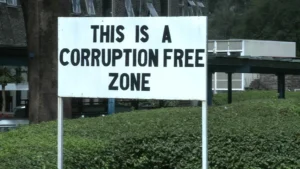The 2024 bestseller by American social psychologist Jonathan Haidt is aptly titled The Anxious Generation. In this riveting book, Haidt offers a sobering critique of a generation overwhelmed by smartphones and social media, resulting in a mental health epidemic. While social media and smartphones rapidly take over lives, even here in Kenya, I would add one more element to this list of anxiety: the evening news. Each evening, in homes across our country, news bulletins unleash endless streams of negativity- murders, tragic accidents, and political battles drenched in vitriol. This diet of despair leaves us anxious, fearful, and increasingly hopeless. In fact, several studies have demonstrated a growing phenomenon of news avoidance for precisely this reason.
A 2022 survey in the United States powerfully confirmed the link between negative news and anxiety. In the study conducted by the American Psychological Association, 73% of adults reported that the news was a significant source of stress in their lives. In Kenya, this figure could be even higher. We are subtly yet powerfully conditioning ourselves and the next generation towards anxiety, distorted values, weakened community bonds, and a loss of purpose. The reality is stark: our collective mental health is declining, community trust is eroding, and genuine hope is fading. However, there is good news — we still have the power to rewrite this story.
First, our media owners must recognize their immense influence on our nation’s psyche. Behavioral science has shown that repeated exposure to negativity significantly affects mental health, triggering anxiety and despair. Yet, this same power can uplift, inspire, and transform. Imagine a prime-time segment called “Kenya’s Moment,” dedicated exclusively to developmental and inspiring stories. This segment would spark optimism and foster national pride by highlighting innovations, successes, and heroes within our communities. Consider our national sports infrastructure — our athletes face the embarrassment of traveling to neighboring countries for qualified training facilities because ours are under renovation. If we focused media attention constructively, we could rally collective support, corporate sponsorships, and governmental action to rebuild our stadiums and reignite our national sporting spirit once again.
Second, policymakers must introduce targeted tax incentives to ensure that media houses sustainably embrace positive reporting. Implementing a clear and transparent “Positive News Credit” would provide tax rebates to media houses dedicating airtime to constructive stories and to advertisers sponsoring such segments. This innovative model aligns profit motives with social good, encouraging a responsible media landscape. Under this arrangement, if a media house consistently dedicates airtime to positive narratives, it would qualify for direct tax credits. Similarly, businesses sponsoring these segments would receive significant tax deductions, enhancing their corporate social responsibility image and fostering community development.
Thirdly, we must extend these incentives beyond media alone. Providing substantial tax rebates to corporations that invest directly in public infrastructure- such as international-standard stadiums, parks, and community centers- will swiftly transform our physical and social landscape. Partnerships between the government and the private sector have proven globally effective, driven economic growth, and fostered strong community engagement.
Moreover, incorporating behavioral science education into media training can transform journalism itself. Teaching editors and journalists about the psychological impacts of their reporting will naturally steer content towards balanced narratives, fostering mental well-being and societal optimism.
Implementing these transformative steps demands collective responsibility and bold vision from policymakers, media owners, advertisers, and every citizen. It also requires us to agree to pursue different approaches, even if they challenge our long-held beliefs about the role of media in society. Pilot programs involving major media houses and corporate sponsors could quickly demonstrate their viability, effectiveness, and broad societal benefits. This could pave the way for developing national policies to support the shift.
Indeed, words shape our world, and the stories we tell today define our tomorrow. As a nation, we possess the extraordinary power to transition from despair to hope and from anxiety to optimism. As Obama said, “We are the change we have been waiting for.” Think green; act green!



